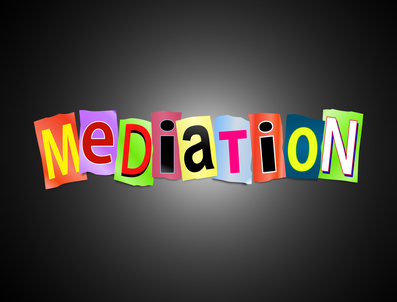
People occasionally approach me to ask if I would mediate a business dispute. While I do believe that an experienced mediator could address either a divorce or a business dispute, I personally choose to work with all types of family conflicts as well as divorce. I asked my colleague Ian Grodman, who serves as a mediator in both family and business disputes, to talk about some of the differences and/or similarities that he sees between the two types of mediation.
As someone who mediates both family and civil/business cases, I am often asked if there are differences between mediating the two types of cases. There are in fact far more similarities than differences. In both types of mediation, a third party, the mediator, facilitates a discussion or a negotiation between parties in conflict. Both types of mediation also share many benefits such as cost savings, confidentiality, and control over resolution.
But there are some significant differences between family mediation and civil mediation:
Physical Situation
In the actual set up for the conversations, divorcing couples usually sit in the same room with the mediator, and rarely are lawyers present.
In civil mediations, while the parties typically start off in the same room with their lawyers present, they often end up in separate rooms, with the mediator engaging in “shuttle diplomacy” between the parties, and “mediating” between their individual attorneys themselves in separate spaces.
Continued Relationship or Not
Another difference can be attributed to whether the parties to a dispute will have a continued relationship once a resolution of the dispute has been reached.
In family mediation, the fact that the participants are likely to continue to have a relationship once the dispute is resolved colors the entire process. As I often tell my divorce mediation clients who have children, “While you will no longer be married, you will be a family forever.”
This is often the case in a civil matter as well, if the parties continue to have a relationship once the dispute is resolved. The mediator must be absolutely sure that the parties have really heard each other, and have really understood each other.
In a family or civil relationship which is beyond repair, the mediator endeavors to guarantee that the parties have reached a place where they can work together to address their continued and shared responsibilities.

Ian Grodman, Family/Divorce & Business Mediator
In many civil mediations, where the parties are represented by counsel, and where the same “posturing” we typically see in litigation takes place, a mediation is often like an extended settlement conference. But in the case where a continued relationship and working together are required, mediation creates a real opportunity to promote empathy and understanding. An opportunity not only for resolution, but to create a collaborative environment for continued problem solving.
Ian Grodman is a family/divorce and business mediator, as well as an immigration attorney based in South Orange, New Jersey. He can be reached at 973-313-2424 or by email at [email protected]. To learn more about Ian and the Accord Mediation Center, visit accordmediationcenter.com and facebook.com/AccordMediationCenterLLC.

jennifer safian
divorce and family mediator
phone: (212) 472-8626
email: [email protected]
website: www.safianmediation.com
Divorce and Family Mediation
Upper East Side of Manhattan (NYC)
New York, NY